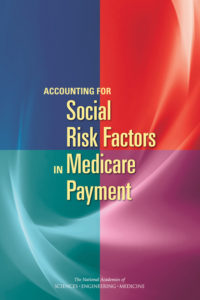U.S. House Committee Looks at 340B
Are hospitals using the savings generated by their participation in the section 340B prescription drug discount program to help their low-income and uninsured patients?
That’s what the U.S. House Energy and Commerce Committee’s Health Subcommittee is asking.
Earlier this year the committee requested such information from the Health Services and Resources Administration, which runs the 340B program, and now it’s asking hospitals as well.
 Specifically, the subcommittee sent five-page letters to 19 providers that participate in the 340B program asking them about:
Specifically, the subcommittee sent five-page letters to 19 providers that participate in the 340B program asking them about:
- the quantity of 340B-purchased drugs they dispense to Medicare beneficiaries, Medicaid beneficiaries, and those with private insurance
- the quantity of 340B-purchased drugs they dispense to uninsured patients
- their savings from the 340B program and how they calculate those savings
- how much charity care they provide
- how they use 340B savings to serve vulnerable populations
The letters address many other 340B-related issues as well.
Most Pennsylvania safety-net hospitals participate in the 340B program and view it as a critical tool in their ability to meet the needs of their many low-income patients.
Learn more about the Health Subcommittee’s letter by reading this news release describing this initiative and go here to view the letters the subcommittee sent to selected 340B providers.
 , the National Academies of Sciences, Engineering, and Medicine addresses the question of what social risk factors might be worth considering in Medicare value-based payment programs and how those risk factors might be reflected in value-based payments.
, the National Academies of Sciences, Engineering, and Medicine addresses the question of what social risk factors might be worth considering in Medicare value-based payment programs and how those risk factors might be reflected in value-based payments.



 The Safety-Net Association of Pennsylvania has prepared a detailed review of those provisions. Officials of safety-net hospitals who would like to receive a copy of this memo may request one by using the “contact us” link on the upper right-hand corner of this screen.
The Safety-Net Association of Pennsylvania has prepared a detailed review of those provisions. Officials of safety-net hospitals who would like to receive a copy of this memo may request one by using the “contact us” link on the upper right-hand corner of this screen.

